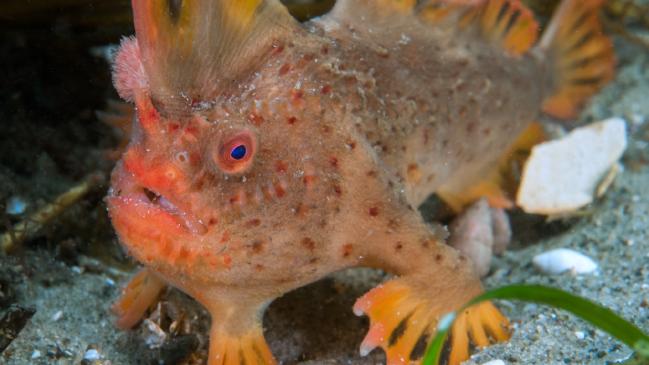An exciting new discovery has been made off Tasmania’s coast which could double the estimated population of one of the world’s rarest fish.
The red handfish (Thymichthys Politus). This is a major breakthrough for the species.
According to divers from the Institute of Marine and Antarctic Studies (IMAS), they found a population of red handfish at a site near the southeast of Tasmania, which only measures 50 meters in length and 20 meters wide, and contains between 20 and 40 aquatic vertebrates. It usually grows to seven to nine centimeters long, living in shallow water on the ocean floor.
Diver Antonia Cooper said that they were diving for approximately three and a half hours and at about the two-hour mark they were all looking at each other thinking that it was not looking promising.
“If they are disturbed, they can do a little burst, they will swim 50cm in a burst and then settle again,” a researcher with the Institute for Marine and Antarctic Studies, Rick Stuart-Smith, told Guardian Australia. “They waddle on their fins, they are just trudging along the bottom. In fact you hardly ever see them actually moving.”
The Red handfish was first discovered near Port Arthur on the Tasman Peninsula in the nineteenth century.
This is the second explored location in the world that’s now known to be home to the endangered fish species. The first, which contains about the same number of inhabitants, is located a few kilometers away, in Frederick Henry Bay.















